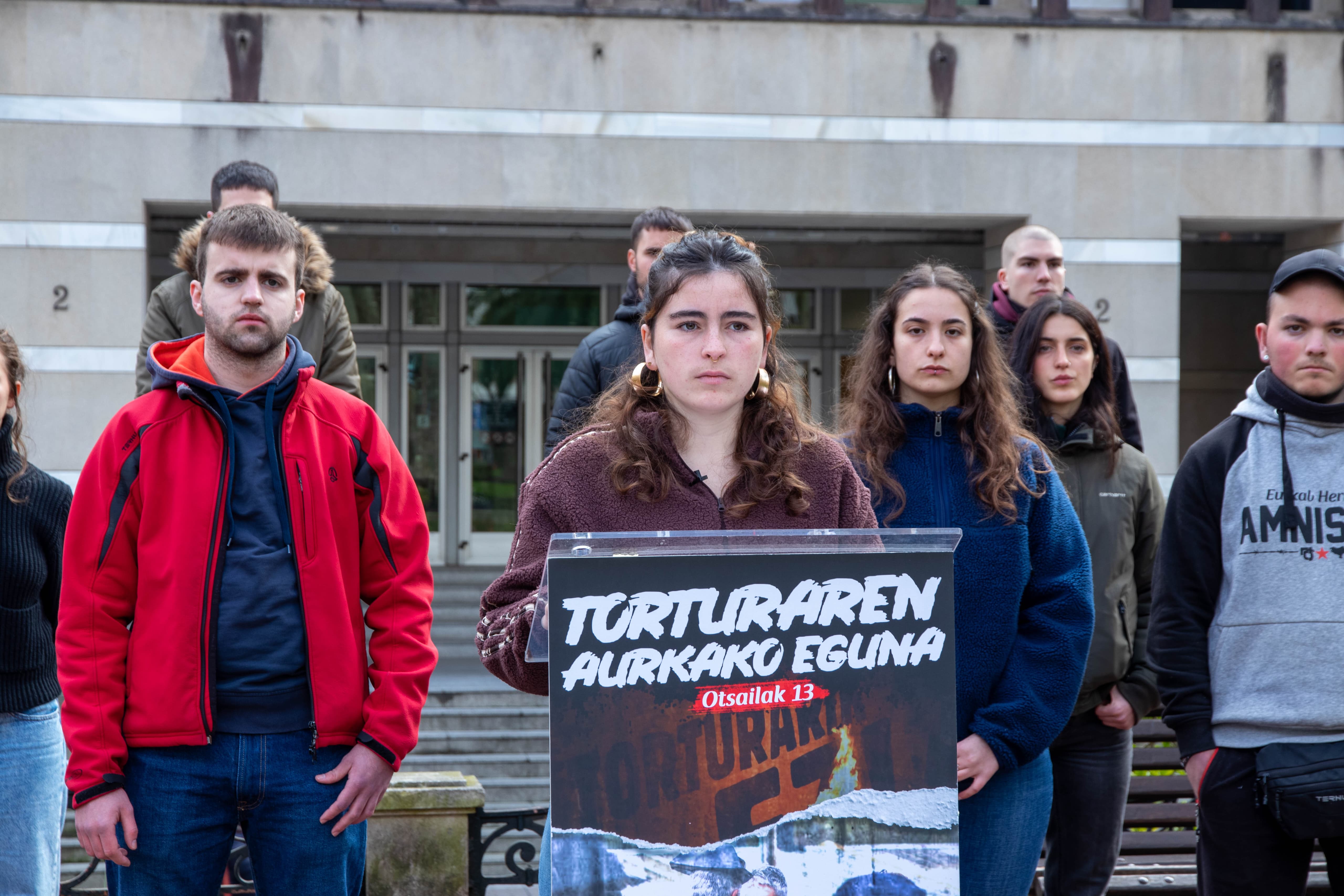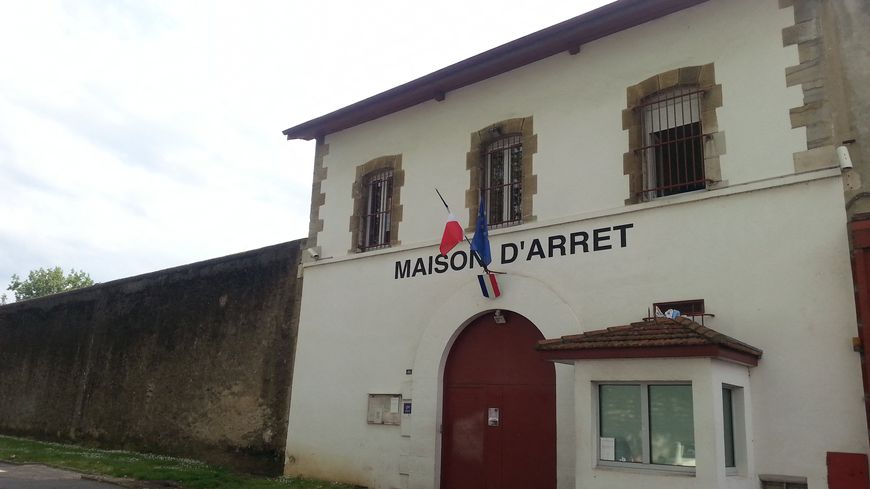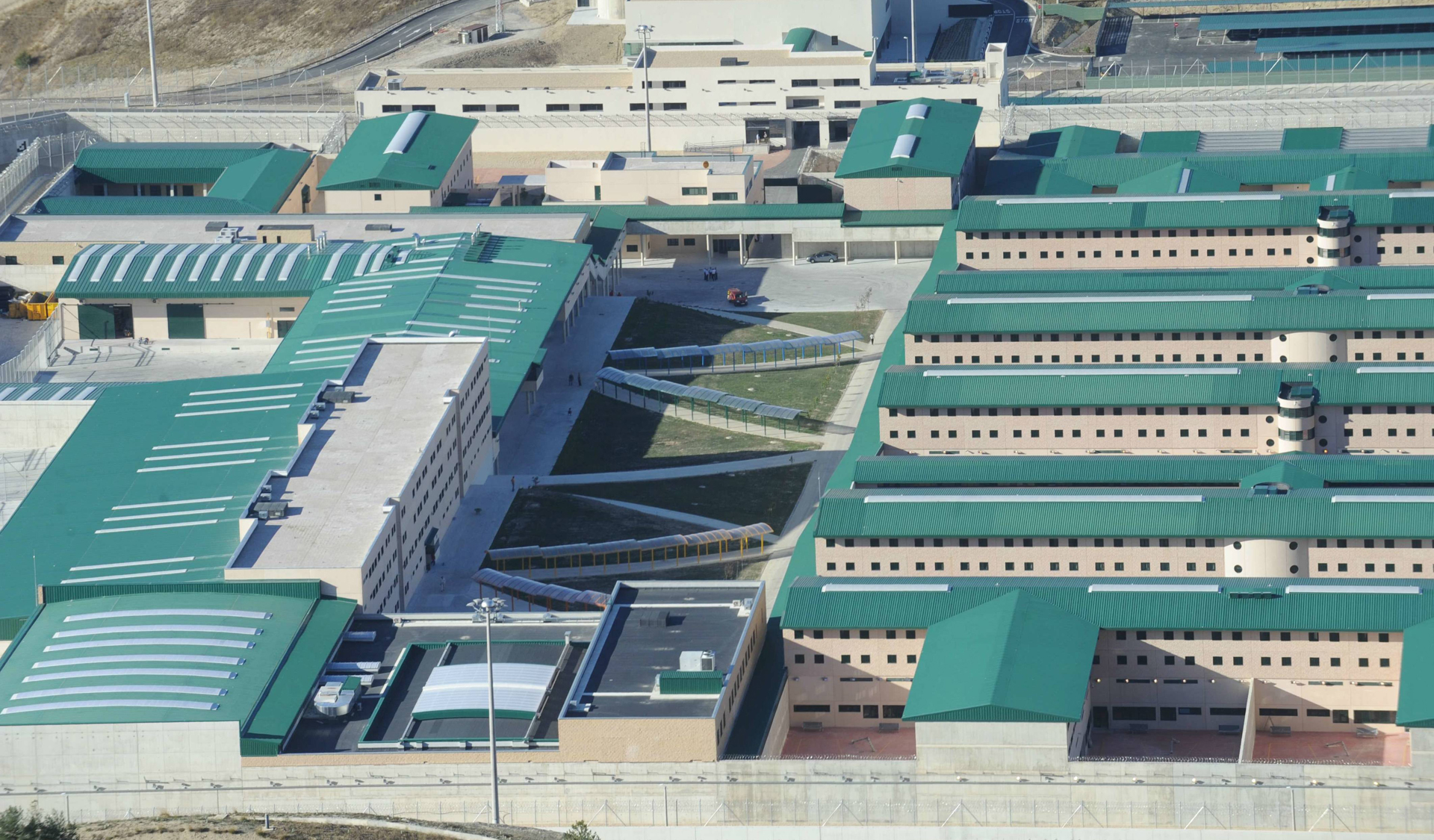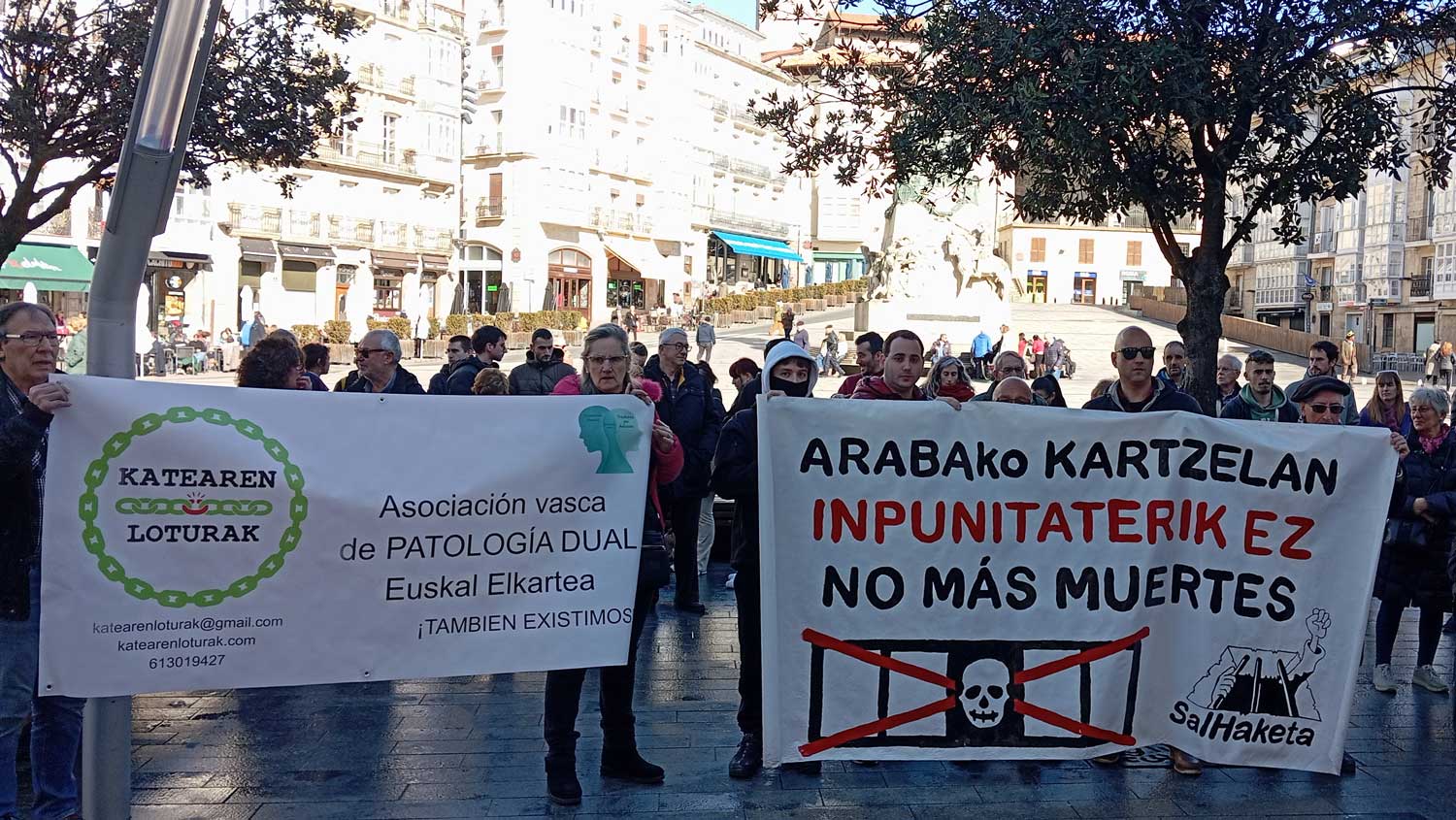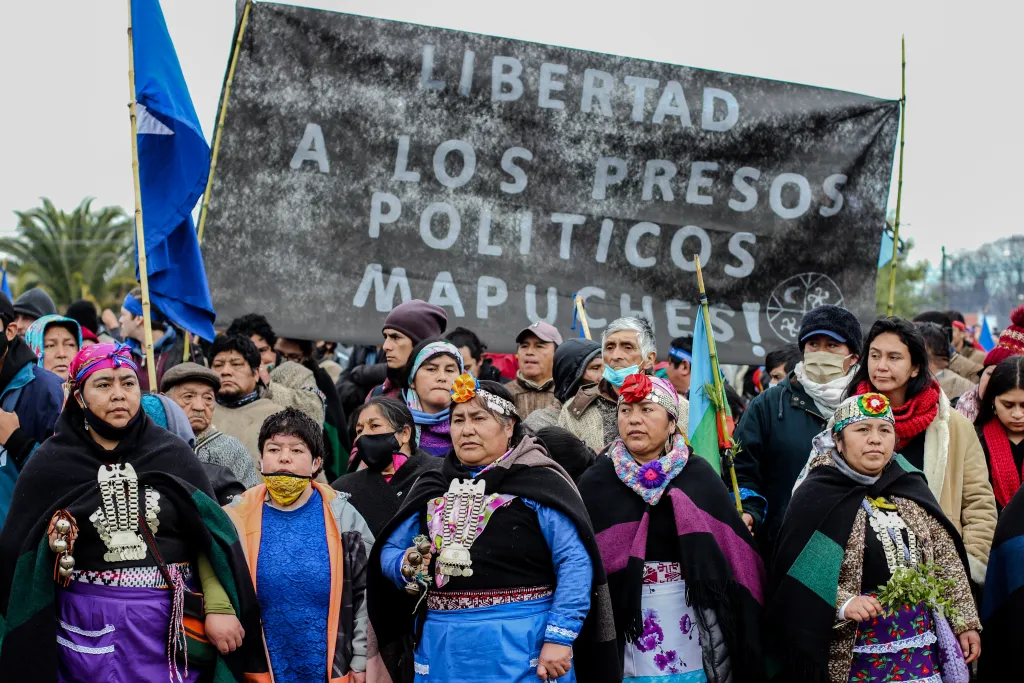Iñaki Garcés: "Once the crisis is over, which of the rights and living conditions lost along the way are we going to recover?
- Who can give the testimony of the prison better than the one in prison? In the 2715 ARGIA weekly, Jail in the COVID-19 era: The experiences of Basque prisoners in the first person, we publish a report. The experiences and reflections written to us by four Basque political prisoners are the essence of the report. But what can't be picked up in the report, and that's why we decided to publish the full letter of each prisoner on the web. Then the otxandiarra Iñaki Garcés.

In Spanish jails there is a widespread opinion or idea that people inside are much more protected from the claws of COVID-19 than anyone outside. If you compare the data that this scourge, at least in its first wave, has left in prisons with those outside, you can say that this statement has some empirical basis. Yes, it has to be admitted that the virus has left much less damage than was expected in an area which, at last, is very conducive to a massive massacre.
Seeing the effect that the disease had on nursing homes and the beginning of the pandemic, here was no one in the interior who thought the death toll in prisons was so small. Very closed spaces; limited and scarce areas; crowded prisons mostly; great difficulties in meeting the safety distances and other preventive measures sometimes, sometimes the lack of will; and, the glowing of the cake, ideal for the health virus of the residents to produce a disaster: The number of prisoners suffering from AIDS, kidney, liver and lung diseases is much higher than that of the rest of the population.
"When COVID-19 goes from being a priority to not entering prisons to a single goal, what will be the compensation faced by the 50,000 men currently living in Spanish prisons?
This big difference between the crudest data and the most negative forecasts indicates that the management of the Penitentiary Administration so that COVID-19 does not enter prisons has been a little effective. However, it has its dark side, which does not appear in the statistics. It is true that in this emergency situation the priority should be that COVID-19 should not enter jails, but when it passes from being a priority to being a single objective, what will be the compensation to which the 50,000 men who currently live in Spanish jails face? What will be the rights and living conditions to sacrifice in this fight against COVID-19? And finally, which of the mechanisms and conditions of life lost on the road after the coronavirus crisis will be recovered and what will be the ones we will have to take for granted forever?
When we begin to pick up the second of the wounds of the coronavirus epidemic, it would not be wrong to take stock of the consequences that the first attack has left, which will allow us a broader perspective to answer the questions we asked later on.
First of all, this invisible virus has shown how easy it is to collapse the Spanish Penitentiary System. On the other hand, it has been seen that the spirit, philosophy, values or whatever, which should guide the penitentiary system, are in the role and demagogic speeches of the rulers, alone and not in practice. Therefore, behind this apparent and progressive philosophy, in which individual scientific treatment, reinsertion and practice based on civility are claimed, there is nothing but banal positivism. We shall soon see what some lines consist of what has been said before.
“Almost all the movement of people from the outside has recovered (teachers, educators, workshop leaders...); but our relatives are still prohibited”
Last March, when the unprecedented pandemic in the world managed to invade all the environments of our lives, the Spanish Ministry of the Interior decided to hermetically close prisons. The objective of this operation was to achieve the “island effect”: the prisons on the island, in the open sea. Avoid traffic between prison and the street and thus keep the occupants out of danger of contamination. Those in charge of the Prison Administration immediately realized that if the virus entered prison, as has happened in nursing homes, it could cause enormous damage, as there are no conditions within which to implement the strict security measures applied elsewhere to deal with the disease.
This caused all external relations to be cut off, so since then we have not had the opportunity to receive in-person visits with our relatives in Zuera prison. I mean, we've been without hugging our children, our parents, our partners and our friends for over eight months.
Today, when we're on the doorstep of the second wave of COVID-19, we haven't yet recovered some of the rights lost in the first wave. It also appears that the Prison Administration has no intention of returning, at least in the short term, to the pre-pandemic visa situation.
I am very keen to see how almost all the activities of this prison (Zuera) have returned to the pre-pandemic situation and in-person visits continue to be banned on the pretext of reducing the risk of the virus entering the outside. There is a very curious paradox, at least in this prison: almost all the movement of people from the outside to the inside has been recovered (teachers, educators, workshop managers...); but our families are still forbidden to enter.
Zuera, 1 November
*Iñaki Garcés Beitia (Otxandio, Bizkaia) The prisoner was first incarcerated between 1987 and 1990. He was subsequently arrested by the Civil Guard in Vitoria-Gasteiz in 1998, after which he was arrested. The National Court sentenced him to 25 years in prison for the crimes of damage at the military base of Araka (Álava), possession of explosives and membership of ETA. He reported having been tortured during the period of incommunicado detention. In prison he was sentenced to a second one-year prison sentence for a fight with a Civil Guard official. He will serve his sentence in full in 2024. It is located in the Zuera prison (Zaragoza, Spain), in the second grade, but without a movement permit. The Social Forum has recently pointed out Zuera prison as the “paradigm” of the obstacles to progress through the legal path.

Alarma jo du, beste urte batez, OIP Presondegien Nazioarteko Behatokiak. Abenduaren lehenean marka berri bat hautsi zen frantses estatuan, 80.792 pertsona atxiloturekin. Espetxe-administrazioaren aitzinikuspenen arabera, gainera, 86.000 baino gehiago izan litezke 2027an egungo... [+]








